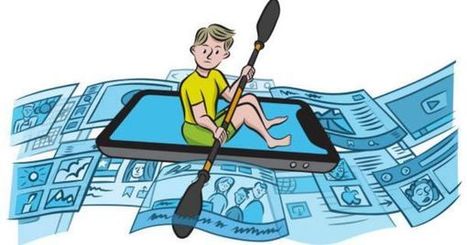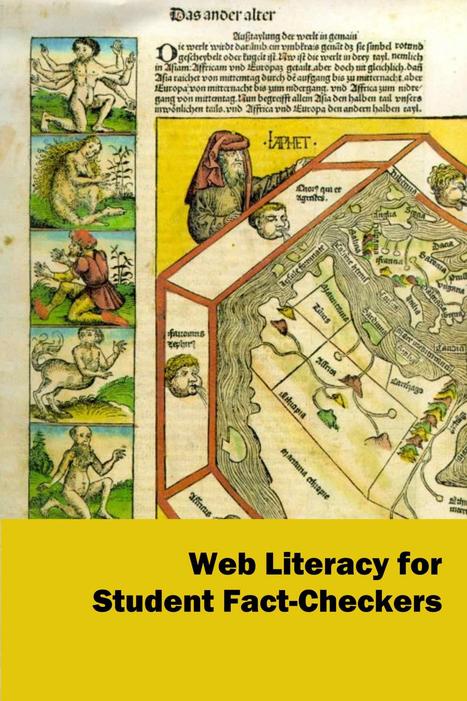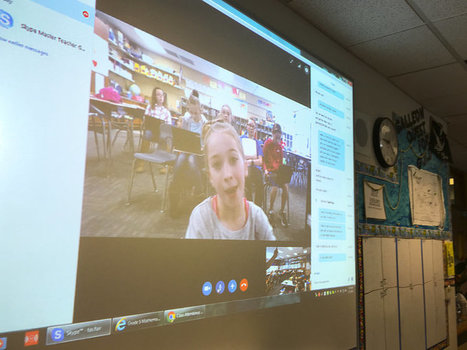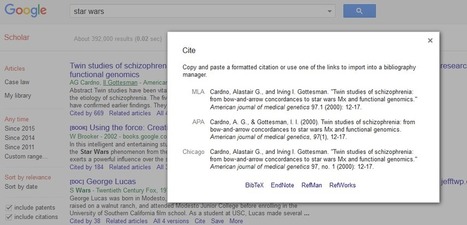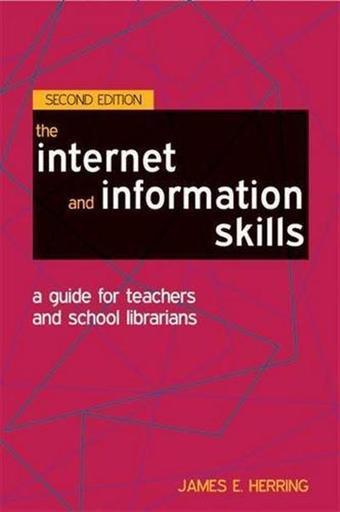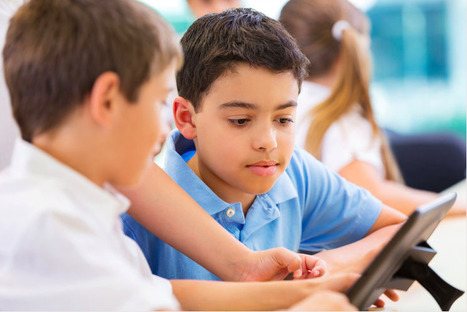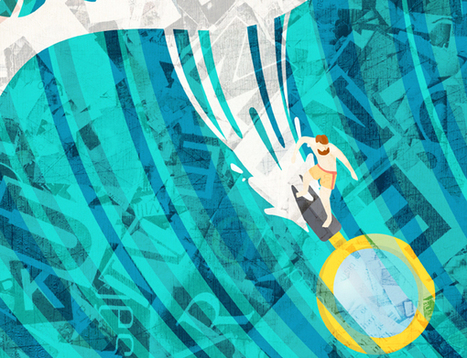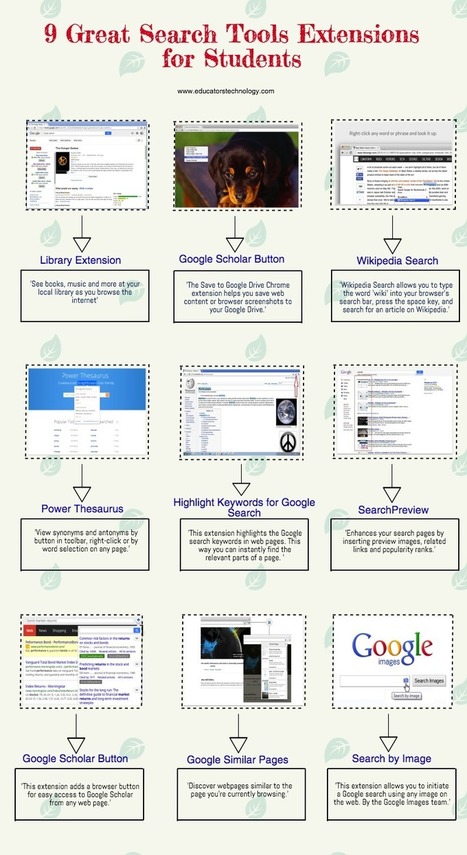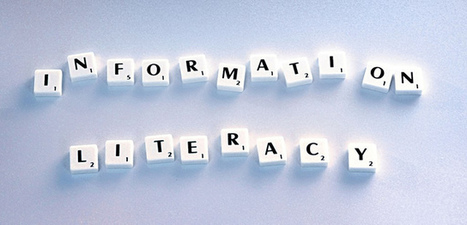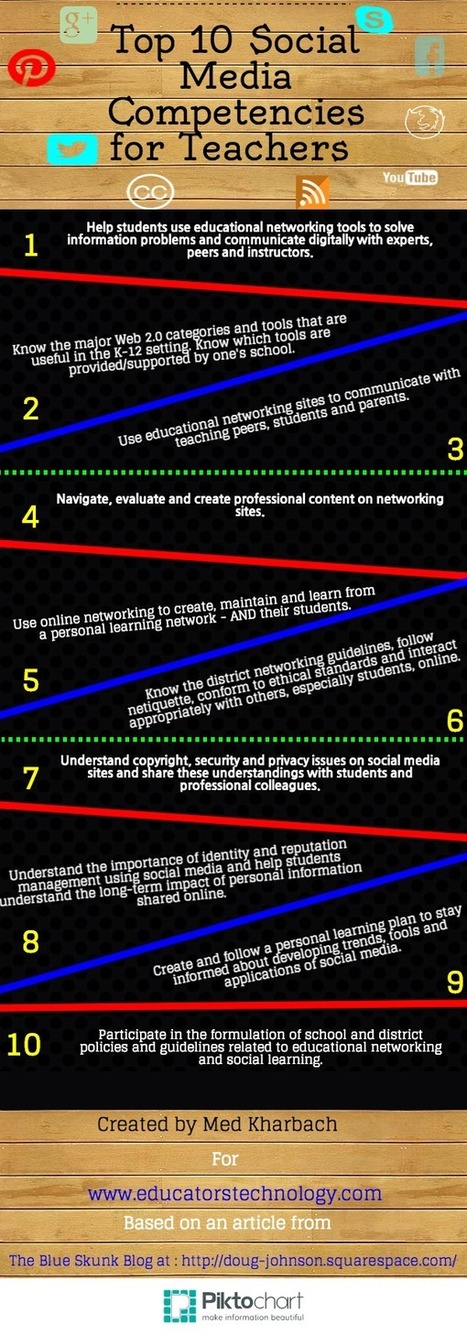 Your new post is loading...
 Your new post is loading...
Beneath the spread of all “fake news,” misinformation, disinformation, digital falsehoods and foreign influence lies society’s failure to teach its citizenry information literacy: how to think critically about the deluge of information that confronts them in our modern digital age. Instead, society has prioritized speed over accuracy, sharing over reading, commenting over understanding. Children are taught to regurgitate what others tell them and to rely on digital assistants to curate the world rather than learn to navigate the informational landscape on their own. Schools no longer teach source triangulation, conflict arbitration, separating fact from opinion, citation chaining, conducting research or even the basic concept of verification and validation. In short, we’ve stopped teaching society how to think about information, leaving our citizenry adrift in the digital wilderness increasingly saturated with falsehoods without so much as a compass or map to help them find their way to safety. The solution is to teach the world's citizenry the basics of information literacy.
Via John Evans, Jim Lerman
The following article is adapted from our upcoming book on future-focused learning. It talks about how to teach learners to build solid research skills for school and for life.
How do we help our learners develop research skills that will serve them practically in school and life? Having this set of information location and management abilities in any digital-age survival kit applies equally to students, teachers, and everyday people. In the classroom, we teach it using the process of Information Fluency.
Via Elizabeth E Charles, Dennis Swender
Web Literacy for Student Fact-Checkers by Michael A. Caulfield is licensed under a Creative Commons Attribution 4.0 International License, except where otherwise noted.
Via Elizabeth E Charles
Higher-level thinking has been a core value of educators for decades. We learned about it in college. We hear about it in PD. We’re even evaluated on whether we’re cultivating it in our classrooms
Via Nik Peachey
Back in the days when fake news was screaming about aliens visiting our planet or people coming back from death, it was easy to avoid publishers with rubbish information. Nowadays, an increased access to communication and media has led to the flood of false or useless information. As a result, even those people who want to avoid all this mess are not successful in spotting fraud.
Via Elizabeth E Charles
Back in September we were approached by iSchool Professor Rachel Ivy Clarke and Director of the B.S. in Information Management and Technology program director Deb Nosky with a challenge:
How do you teach information and data literacy to a group of high school girls interested in STEM fields?
… by making it fun, of course!
Given the idea to create an escape room by Deb, five of us library science students banded together (myself, Kara Conley, Kayla Del Biondo, Kim Hoffman, and Nicole Potter) to develop an It Girls workshop that addressed three main areas: information literacy and identifying fake resources, smart searching, and data literacy.
What transpired was a truly memorable experience for a group of LIS students with limited prior knowledge on instruction.
Via Elizabeth E Charles
Free webinar with Nicholas Kristof on Oct. 10. Will be archived after the live session. "How can writing change people’s understanding of the world? How can it influence public opinion? How can it lead to meaningful action?
In this post, which accompanies our Oct. 10 webinar, Write to Change the World: Crafting Persuasive Pieces With Help from Nicholas Kristof and the Times Op-Ed Page, we round up the best pieces we’ve published over the years about how to use the riches of The Times’s Opinion section to teach and learn.
We’ve sorted the ideas — many of them from teachers — into two sections. The first helps students do close-readings of editorials and Op-Eds, as well as Times Op-Docs, Op-Art and editorial cartoons. The second suggests ways for students to discover their own voices on the issues they care about. We believe they, too, can “write to change the world.”
Join our webinar (live on Oct. 10 or on-demand after) to learn more, and let us know in the comments how you teach these important skills."
Via Jim Lerman, Mary Reilley Clark
When searching Google Scholar, you can find the full-text directly by linking your library, get more search options for more detailed searches and more.
Via Elizabeth E Charles
Improving Students' Web Use and Information Literacy free download As a result of recent learning and teaching developments, teachers are being trained to use ICT to develop more innovative teaching methods, and students are invariably required to use electronic information resources as part of their assignments. Networked internet access is now the norm in both primary and secondary schools, available not only in the school library but in computer suites and classrooms. Teachers and school librarians are increasingly aware that information literacy is a key skill needed by today's students, who are tomorrow's workers within the knowledge economy. The need for educators to understand how to help students to become effective information users is paramount. This book offers teachers and school librarians the means to exploit the internet effectively both as a learning and a teaching resource; in particular to hone their skills in accessing the most relevant parts of the internet to provide suitable information sources to aid students' learning. It offers valuable insights into information literacy and provides helpful examples of the most effective ways of teaching information skills. The book is a vital resource for all teachers and school librarians, and is relevant in all areas of the world. It is equally of use to head teachers and to professional educators and managers up to further education level. It should be on reading lists of all education institutions offering teacher training courses.
Via Elizabeth E Charles
|
This is the age of misinformation and fake news. Here are the best unbiased fact-checking sites so that you can find the truth.
Via John Evans
Google Scholar crawls the worldwide web for scholarly articles and research so that you don’t have to.
Scholarly Googlebots relentlessly scour the Internet for academic and peer-reviewed resources that fit your topic search and leave you with more time for analysis, writing your thesis and sharing the results with your classes and peers.
Via Elizabeth E Charles, Dennis Swender
4 online tools used to engage teachers in collaboration and information literacy. School libraries are an essential part of every school. Learn about ways to collaborate and make a difference to your student learning and engagement.
Via Elizabeth E Charles
How can educators teach elementary and middle school students to be critical consumers of news and media? We asked media literacy experts—teachers and librarians—for their best tips. Here’s what they
Via Bookmarking Librarian
Critical information processing skills are best taught rather than caught. Adding a few targeted activities to your course can assist your students in developing these important skills that will serve them well in your course and beyond.
Via Elizabeth E Charles

|
Scooped by
Jim Lerman
|
At last count, there were over 80,000 educational apps available to teachers. While many of these may be a dream come true for educators, the dizzying array of choices is also a nightmare. Teachers just don’t have time to filter through thousands of apps to find the one that works best for the needs of their students. To make this process less agonizing, here are the hallmarks of a classroom-ready educational app. It has clear connections to the curriculum. Classroom time is valuable, and can’t be wasted on games and apps that do not clearly align with curriculum goals. These …
After the 2016 U.S. presidential election, the world seems to be waking up to what educators have known for a long time: media literacy matters, especially as it relates to the news, social media, and the web. While the definition and specific skills of media literacy (as well as its companions, news literacy and information literacy) evolve with the media and technology landscape, the core objectives remain: that through media literacy, students learn to find, consume, and create media critically and develop a mindfulness about how media is made, by whom it is made, and for what purposes it is made. There are a lot of tools out there to help students build and practice these essential skills, and on this list we feature some of the best we've found. You'll find great apps and websites broken down into three core categories: those that help students evaluate media, those that help them create media, and those that steer students toward factual sources.
Via Elizabeth E Charles
As a companion “Best” list to The Best Resources For Learning Research & Citation Skills, I thought it would be useful to create this one.
I’m using the term “information literacy” here to describe assisting our students developing critical thinking skills to evaluate both web and content in other media forms. I’ve seen the term used to describe broader skills, too. Let me know if you think I’m off-based with my definition.
Via Elizabeth E Charles
Improving Students' Web Use and Information Literacy free download As a result of recent learning and teaching developments, teachers are being trained to use ICT to develop more innovative teaching methods, and students are invariably required to use electronic information resources as part of their assignments. Networked internet access is now the norm in both primary and secondary schools, available not only in the school library but in computer suites and classrooms. Teachers and school librarians are increasingly aware that information literacy is a key skill needed by today's students, who are tomorrow's workers within the knowledge economy. The need for educators to understand how to help students to become effective information users is paramount. This book offers teachers and school librarians the means to exploit the internet effectively both as a learning and a teaching resource; in particular to hone their skills in accessing the most relevant parts of the internet to provide suitable information sources to aid students' learning. It offers valuable insights into information literacy and provides helpful examples of the most effective ways of teaching information skills. The book is a vital resource for all teachers and school librarians, and is relevant in all areas of the world. It is equally of use to head teachers and to professional educators and managers up to further education level. It should be on reading lists of all education institutions offering teacher training courses.
Via Elizabeth E Charles, Miloš Bajčetić
|



 Your new post is loading...
Your new post is loading...



